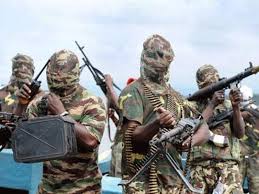United Nations High Commissioner for Refugees (UNHCR) has lamented that repeated attacks in Nigeria has forced over 11,500 people to flee into Niger in November.
The UN Refugee Agency, said armed groups, locally called “bandits,” have repeatedly attacked villages in Sokoto State in Nigeria’s Northwest in recent weeks, insisting that the violence comes against the backdrop of intercommunal clashes between farmers and herders as competition increases for dwindling resources, aggravated by the climate crisis.
UNHCR spokesperson Boris Cheshirkov said: “We are deeply concerned by the surging violence in Northwest Nigeria and call for concerted and massive support to address the growing humanitarian needs of the affected population, ranging from protection services to food, shelter kits, kitchen utensils, blankets and other non-food items.
He lamented that most of the November arrivals have taken shelter with local communities in 26 villages across Bangui, a rural community in Niger’s Tahoua region which was already hosting 3,500 Nigerian refugees since September, adding that women and children make up the majority of the recent arrivals and describe killings, kidnappings for ransom, and the looting of their villages as the reason they fled.
Cheshirkov said in coordination with Nigerien authorities, UNHCR is registering new arrivals, providing emergency assistance, and identifying the most vulnerable. “But the need for shelter, food, water, and healthcare is rising rapidly.
We are also strengthening local health and education infrastructure in Bangui, including building latrines for 12 schools, and water access for six others. The main health centre in Bangui will be connected to water and electricity and five smaller health centres will be provided with staff.
He said Niger now hosts more than 200,000 Nigerian refugees, including more than 57,000 refugees from Northwest Nigeria in Maradi region and 15,000 in Tahoua region.
He said UNHCR commends Niger as an example of solidarity and generosity in a region grappling with escalating crises. It has given shelter to 600,000 refugees and internally displaced people, despite violence at its border regions, economic hardship, social challenges, and the effects of the COVID-19 pandemic.
He also lamented that the Central Sahel countries of Burkina Faso, Mali, and Niger are at the epicentre of one of world’s fastest-growing displacement and protection crises. More than 900,000 refugees and nearly 2.5 million internally displaced people are hosted in the region.
UNHCR however urged the international community to step up efforts and expand support to Sahel states beyond security and renews its urgent call on warring parties in the Sahel to end the violence affecting civilians.
He decried that in Niger, humanitarian efforts to respond to the emergency are dangerously overstretched. UNHCR’s operation, which requires US$110.7 million for 2021 is 64 per cent funded, stressing that continued and increasing support is needed for UNHCR to continue providing life-saving assistance.


